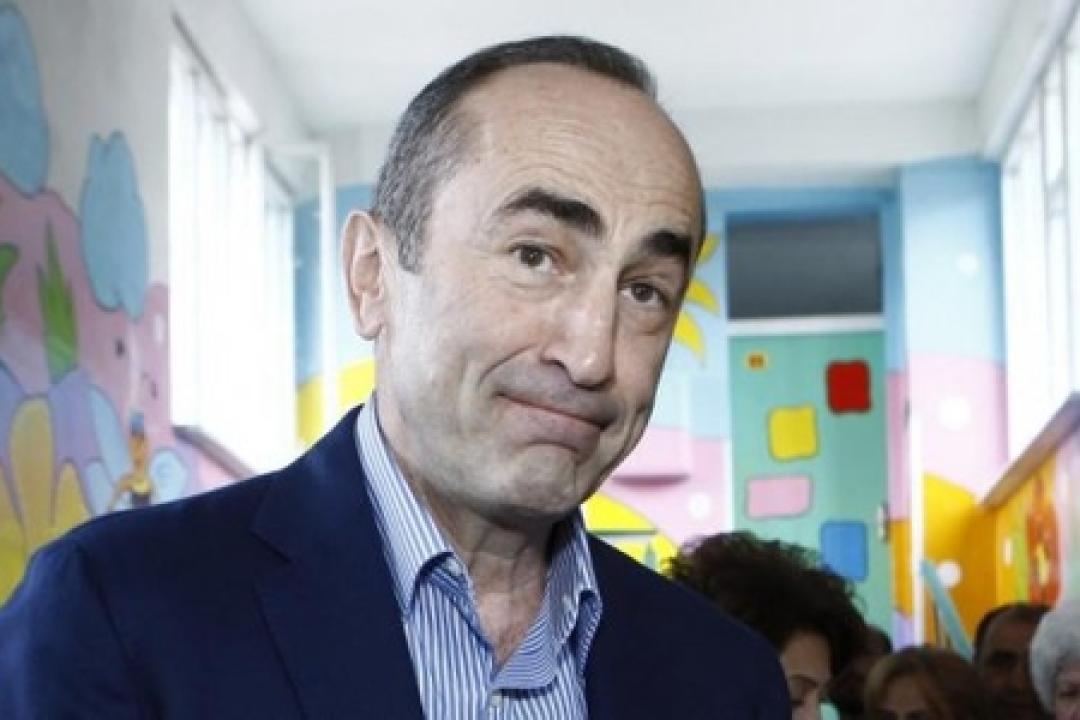
Kocharyan shares his views on the current political situation in Armenia

On 8 November, former Armenian President Robert Kocharyan wrote an article for Sputnik Armenia where he assessed the current global landscape and its impact on Armenia, as well as commenting on the current political situation in Armenia.
Commenting on the current global political trends, Kocahryan wrote that:
“We are witnessing fundamental changes in world politics when the undisputed leadership of the United States is effectively challenged by new rising global players. The world leader that has exhausted the resource of its domination, but is not wishing to give up its positions is unsuccessfully trying to prevent the growing power and influence of emerging rivals. Such processes are known to history, are well studied by experts and are always accompanied by uncertainty, instability, and often also large and small wars.”
Looking into the regional context, he wrote that the relations between Turkey and Azerbaijan have further strengthened in recent years, “becoming a cornerstone in the context of the revived pan-Turkic aspirations, which pose a direct threat to Armenia and Nagorno-Karabakh”. “The recent statement by Azerbaijani President Ilham Aliyev about claims to Zangezur that he made at the summit of Turkic peoples in Baku (Caucasus Watch reported) was by no means accidental. This is a step towards the actualization of the forgotten idea of geographical continuity of the settlement of Turkic peoples,” he wrote.
As a means to cope with this situation, Kocharyan suggested that “cooperation with Russia in the field of security becomes even more important for Armenia and obviously has no alternative for the country”. “Only irresponsible or recruited politicians can today insist on the withdrawal of the Russian base from the country. The Kurdish tragedy unfolding in northern Syria should be a clear lesson of consequences of political [short sightedness],” he wrote.
On the current political landscape in Armenia, Kocahryan wrote that:
“With the exception of a couple of minister-technochrats – not having the character of a real political subject – the government and the nucleus of the parliamentary majority is composed of individuals feeding themselves with US grants. The government receives media support exclusively from pro-Western media outlets, with Radio Liberty being their vanguard. Prime Minister Nikol Pashinyan also actively backs a party notorious for its terrorist reputation, which aggressively leads the battle to remove the Russian military base from Armenia. The entire politically active fulcrum behind the prime minister thus turns out to be openly pro-Western. And all this is under conditions of continuing the former authorities policy line by showing periodically courtesy to Russia. As a result, Armenia lives on without conceptual programs, governed by the regime of empty slogans and foreign policy guidelines full of uncertainties.”
On the Nagorno-Karabakh settlement, he wrote that:
“The weakening of [the Armenian] negotiating positions was due to [the Armenian] gross errors is obvious indeed. Pashinyan’s statement that “Nagorno-Karabkah is Armenia - period” (Caucasus Watch reported) shifted the negotiations from the track underlying the principle of the self-determination of nations to a platform not quite desirable for us, i.e. – that of territorial integrity. The elevator contacts between Pashinyan and Aliyev nullified, in point of fact, the arrangements reached in Vienna and St Petersburg, which were very important for us. The controversial statement by Armenia’s leadership and the absence of a clearly worded position on settlement called into question Armenia’s constructiveness.”
Kocharyan also wrote that the Armenian society had “never before been split through controversies to such a high degree. The complicated relationship between the governing elites of Armenia and Artsakh, the demonization of war heroes, humiliation of generals with a military past and the disrespect for the memory of killed servicemen appear to be the dangerous enemies of the society's patriotic potential.”
The chair of the parliament’s foreign relations committee and member of the ruling My Step faction Ruben Rubinyan, said that Kocharyan "used talking points of Azerbaijan" in his article. “It can be described as trouble-making. I don’t think that any Armenian politician, especially a person who formerly occupied the post of the president, could bring forth such pro-Azerbaijani arguments,” he said. Rubinyan also rejected Kocharyan’s claims that Armenia has a divided society today. “We saw people’s unity during the 2018 Velvet Revolution. We are against the idea of being ‘pro-someone’. We stand only for the interests of Armenia and Nagorno-Karabakh,” he said.
Another My Step’s lawmaker Gayane Arakelyan argued that the goal of Kocharyan’s article was to derail Armenian-Russian relations. “Clearly this is a message to Russia that pursues certain goals. I say that Kocharian will never stop at anything. Even if with each such message he deeply harms Armenian-Russian relations, he will never have repugnance to do so. He will resort to anything possible even at the cost of the state and statehood, even at the cost of the country’s sovereignty,” she said.
See Also


Mirzoyan Meets US Deputy Assistant Secretary Joshua Huck

Azerbaijani President Holds Talks with UAE and German Business Delegations on Economic Cooperation

Grigoryan Confirms Armenia’s Readiness to Dissolve OSCE Minsk Group Upon Peace Treaty Signing

Azerbaijani Official Warns of Ecological Risks to Caspian Sea, Similar to Lake Urmia and Aral Sea

